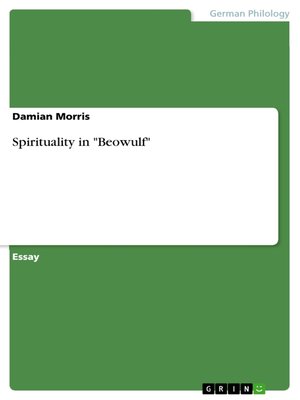
Sign up to save your library
With an OverDrive account, you can save your favorite libraries for at-a-glance information about availability. Find out more about OverDrive accounts.
Find this title in Libby, the library reading app by OverDrive.



Search for a digital library with this title
Title found at these libraries:
| Library Name | Distance |
|---|---|
| Loading... |
Essay from the year 2011 in the subject German Studies - Older German Literature, Medieval Studies, Knox Grammar School (-), language: English, abstract: In the text Beowulf, there exist three separate strands of mutually reinforcing religious thought which have been developed as a result of the various contextual forces influencing the text throughout its history. These three strands, Myth, Paganism, and Christianity are all present in three distinctly different interpretations of the storyline of Beowulf, and were not written into the text with deliberate intent by the multiple composers; rather, they represent the spirituality of each of the separate societies and cultures which were their geneses. As a result of this stratification of the three separate strata, highly conflicting and different ideas are present in each interpretation of the text. Within each interpretation there are several distinct ideas which are promoted by that specific interpretation, and which are separate from the other layers of the text. This results from the three different contextual influences on each layer of the text, which are the influence of universal folklore morphology on the Mythical interpretation, the influence of Paganism from the Scandinavian Dark Ages on the Pagan interpretation, and the influence of Christianity from early Anglo-Saxon England on the Christian interpretation.







